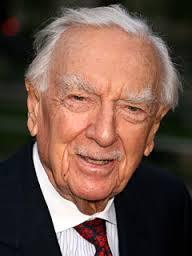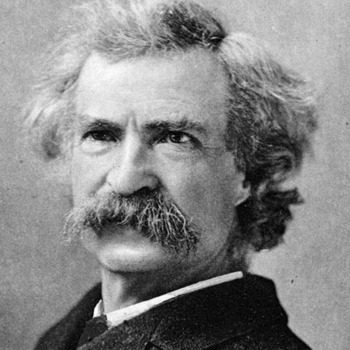I have a pet peeve.
It's bigger than a peeve, actually. If I am right about what I am about to say, then I have both Confucius and the plain-speaking Mark Twain in my corner to underscore the importance of what I am about to ask of you.
My concern has to do with the way we talk about medicine in the United States. More to the point: success in transforming the present medical industry into a system that focuses on health creation will be abetted by getting our language right. The mission of the integrative health and medicine movement will be advanced by conscientiously attending to the words we choose.
My peeve relates to language that we hear and use daily -- language that we use in an Orwellian way. Peace denotes war. Love is hate. You can make a difference by taking some basic steps to undo this Orwellian knot and to help release health from its present cloaking.
Confucius is credited with saying the "the beginning of wisdom is to call things by their proper name."
The words and phrases of most interest to me are "health care" and "health care system." Think of how many times daily we hear of, or refer to, the "X health care system" in our neighborhoods or metropolitan areas. "Health care" is hammered home in advertisements and media reports, in political debates and kitchen-table talk.
We use "health care" as an attribute of institutions where we seek treatment that principally leads to a drug, a procedure, or a surgery -- institutions where a third of what is done is waste, and much of it harmful.
Think also about how flippantly we speak of the nation's "health care debate" or "health care policy" or "health care reform" or some other "health care" initiative. Are these focused on health?
Many of us have heard or read someone dissembling these terms. Former U.S. Senator Tom Harkin (D-Iowa) was the champion for integrative medicine on the Hill. He was fond of telling audiences, as he does in this interview with Dean Ornish, MD, that "we don't have a health care system -- we have a sick care system."
From the perspective of the fellow who was once considered the most trusted person in the United States, former CBS news anchor Walter Cronkite, Harkin's critique of language doesn't go far enough. Cronkite commented: "America's health care system is neither healthy, caring, nor a system."
That's an ugly judgement from the kind Mr. Cronkite -- who, incidentally, was Master of Ceremonies for the very first gala in 2003 organized by the former Bravewell Collaborative of philanthropists for integrative medicine.
The way I understand Cronkite's critique is to consider how much, today, the best people in organized medicine are speaking of the need to transition from a focus on the industrial production of procedures to value-based care. Here, at the Harvard Business Review: "We must shift the focus from the volume and profitability of services provided -- physician visits, hospitalizations, procedures, and tests -- to the patient outcomes achieved."
This is good news. My interest is not in condemning the dominant school of medicine. It is in properly identifying what is being done -- and thus in bringing to light those initiatives, systems and practices that are in fact health focused -- that are taking up this new banner.
Notably, just because "production of services" and "profitability" tend to be highest when people are most ill, we should not assume that such a system for production or profit is a "sick care system."
Great sick care is critical to all of us. I've benefited. Who has not? But if, indeed, medical delivery organizations are focusing on "the volume and profitability of services provided" then they have a system for that, not for delivering the best sick care. Neither imply any focus on health care.
So how do we keep from falling into the "ignorance" or "ineptness" or "imprudence" or "inability" or "thoughtlessness" or "stupidity" that are suggested as the antonyms for the "wisdom" toward which Confucius guides us?
I recently wrote a column on this topic in the peer-reviewed Global Advances in Health and Medicine: Right Language to Release the River of Health in the Medical Industry.
You can start by choosing correct terms in your everyday conversation. The default term -- in place of "health care system" -- is "medical industry." This captures the actual motive force in the vast majority of medical payment and delivery in the United States today.
This is where we are, principally. Why would be need a movement for "value-based care" if we were already focused on values and healthy outcomes?
So speak of "medical industry leaders" in place of "health care leaders." Speak of "costs of the medical industry" in place of "health care costs." The gawd-awful $3 trillion per year medical industry is not the result of a concerted focus on creating health in individuals and in populations.
Use "symptom suppression" if that is the intent of the intervention. There is a role for these. Raise consciousness about the various goals of different approaches and medicines.
To liberate the potential for an actual health care enterprise, speak of the X "medical delivery organization" in place of routine use of X "health care system." Do it locally. Don't engage the Orwellian insertion of love for hate. Don't participate in repeating a medical delivery organization's marketing assertion of "health care" until that is indeed what they are doing.
Here are some characteristics of quality health care. Whole system orientation. Patient centered and family involved. Engages causes. Uses all tools and practitioners, without prejudice. Routinely promotes and practices prevention. Uses the least invasive options in a reasonable therapeutic order. Does as little harm as possible. Prepares ones mind and body for major interventions. Supports you after. Supports healing.
When you find these clustered in the care you or a loved one receive, anoint the work with a term the professionals involved have earned: a "health care system."
Mark Twain is said to have once remarked: "The difference between the right word and almost the right word is the difference between lightning and a lightning bug."
I invite you to "begin the path of wisdom." Practice using appropriate language when you speak of health and disease and the medical industry that thrives around us despite and perhaps because of illness. Each time I catch myself and correct my speech I feel a small victory, a little nudge toward getting us on the path toward health.



